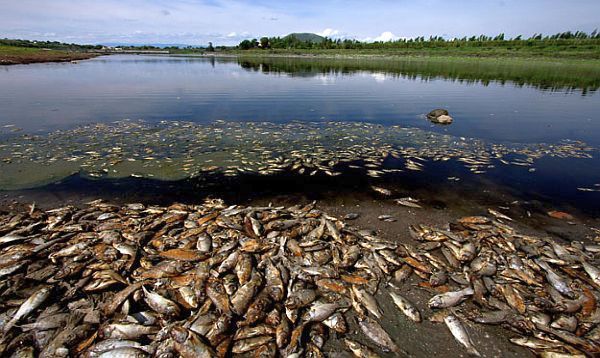Jalisco, Mexico - Tens of thousands of dead fish have washed up on the banks of a Mexican reservoir, amid allegations that a local firm contaminated the water.
Local Mayor Emeterio Corona said that, without a permit, a company that makes food for livestock had dumped hundreds of liters of molasses into a canal that flows into the Hurtado reservoir in Jalisco state. The fish in the reservoir were starved of oxygen and died from asphyxiation.
Local fishermen warned that their livelihoods had been put at risk by the disaster. Some 180 families were reported to live off fishing on the reservoir. Images from the scene showed piles of carp and sea bream being gathered by local fishermen.
Mr Corona, mayor of Acatlan de Juarez, did not name the firm involved but said they had acted illegally. "The environment and the sustenance of everybody in the community was damaged," he said.
"What will they live off? I'm outraged. This is a tragedy," he said on the banks of the reservoir as fishermen removed the dead fish.
Arturo Arceo, a member of a fishing cooperative in the community of San Pedro Valencia, said at least 500 tons of fish were killed.
The mayor has requested government help for the families that live off fishing in the reservoir.


